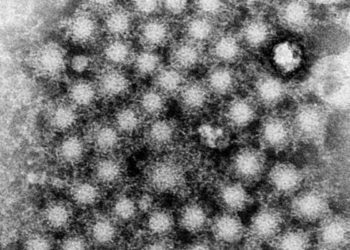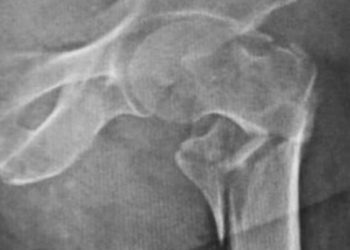Doxycycline postexposure prophylaxis reduces the incidence of bacterial sexually transmitted infections
1. In this randomized trial, postexposure prophylactic doxycycline significantly reduced the incidence of sexually transmitted infections (STIs) in men who have sex with men (MSM) and transgender women.
2. Postexposure prophylaxis with doxycycline was not associated with an increased risk of serious adverse events.
Evidence Rating Level: 1 (Excellent)
Study Rundown: MSM and transgender women are disproportionately affected by bacterial STIs. Doxycycline treatment is a low-cost and effective therapeutic against chlamydia and syphilis with a favorable safety profile. Previous studies have demonstrated the effectiveness of doxycycline as postexposure prophylaxis against STIs, but there is a paucity of evidence of how existing HIV infection could influence the treatment effect. In this open-label randomized trial, the efficacy and safety of postexposure prophylactic doxycycline were compared to standard care in adult MSM and transgender women receiving HIV preexposure prophylaxis (PrEP) or living with HIV infection (persons living with HIV infection; PLWH). Participants were followed quarterly for 12 months. For the primary efficacy outcome, doxycycline postexposure prophylaxis resulted in a lower incidence of overall STI than the standard-care group for both the PrEP and the PLWH cohorts. Similar trends were found for gonorrhea, chlamydia, and syphilis individually. There were six total adverse events and no serious adverse events related to doxycycline use. There was no significant difference in the prevalence of tetracycline-resistant N. gonorrhoeae or doxycycline-resistant S. aureus between baseline and follow-up. However, resistance data was only collected from less than half of the study participants. For limitations, sexual activity and doxycycline use were self-reported, which may lead to inaccurate data collection. Additionally, less than 5% of participants were transgender women, limiting the generalizability of the results in this population.
Click to read the study in NEJM
In-Depth [randomized controlled trial]: In this open-label randomized trial, adult MSM and transgender women who were receiving PrEP or PLWH were assigned in a 2:1 ratio to receive postexposure prophylactic doxycycline (220 and 119 participants in the PrEP and PLWH cohorts respectively) or standard care (119 and 55 participants in the PrEP and PLWH cohorts respectively). Patients in the doxycycline group were counseled to take 200 mg of doxycycline within 72 hours after any condomless anogenital, vaginal, or oral sex. Patients are followed quarterly for 12 months. For the primary efficacy outcome, doxycycline postexposure prophylaxis resulted in a lower incidence of overall STI per quarterly visit than the standard-care group for the PrEP (absolute difference -21.2, percentage points; relative risk, 0.34; 95% Confidence Interval [CI]; 0.24 to 0.46; p<0.001) and PLWH (absolute difference, -18.7 percentage points; relative risk, 0.38; 95% CI, 0.24 to 0.60; p<0.001) cohorts. The number needed to treat to prevent a quarter with an incident STI was 4.7 and 5.3 in the PrEP and PLWH cohorts, respectively. Gonorrhea was the most common STI, and the risk of infection was lower at all anatomical sites with doxycycline in the PrEP group and only lower at the rectal site in the PLWH cohort. The incidence of chlamydia and syphilis was also lower in the doxycycline group for both cohorts. For adherence, 86% of patients took doxycycline postexposure prophylaxis consistently within 72 hours after condomless anal or vaginal sex. Six total and no serious adverse events were associated with doxycycline use. Tetracycline-resistant N. gonorrhoeae was observed in 38% and 12% of the doxycycline and standard care groups, respectively, at follow-up, compared to 27% at baseline. Doxycycline-resistant S. aureus was observed in 28% and 47% of the doxycycline and standard care groups, respectively, at follow-up compared to 12% at baseline. These results suggest that doxycycline postexposure prophylaxis may reduce STIs in MSM and transgender women with and without HIV infection.
Image: PD
©2023 2 Minute Medicine, Inc. All rights reserved. No works may be reproduced without expressed written consent from 2 Minute Medicine, Inc. Inquire about licensing here. No article should be construed as medical advice and is not intended as such by the authors or by 2 Minute Medicine, Inc.









